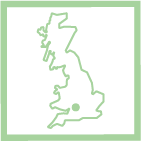
bath,uk
The F Word - Spoiled by our Successes, we have Forgotten how to Fail.
I recently made rye pancakes. Not a challenging task in the least, and one that I undertook with confidence. As a chef, I’ve manipulated doughs and batters into many different forms, and the prospect of making fluffy sourdough pancakes for Sunday brunch was barely a challenge.
After the third one had stuck to the pan and failed to firm up, after I had thrown both spatula and spoon at the wall in rage, I was ready to abandon all hope. My pride was damaged and I felt my skills in question. All I needed was for someone to try and console me so I could unleash my fury on them, when without even breaking her stride as she walked through the kitchen, my mother said “well an awful lot of omelettes have become scrambled eggs, let’s face it”.
Though it may have just been a passing remark to try and sate my anger, this simple phrase struck a chord. It not only addresses how everyone is prone to failure, but how those failures can become successes with a simple change in perspective, and it was exactly what I needed to hear. When they had cooled down, the pancakes took on the qualities of moist wraps and provided us with a delicious meal.
Human error has shaped our society into the advanced state that it is in today, so why are we so ashamed to admit these mistakes? And more importantly, how might we learn from our mistakes and rebrand them as progress? I am neither an anthropologist nor a psychologist, so I cannot claim to know the cultural or mental intricacies by which these questions might find an answer. However I am human, and I have many of my own experiences that might offer some insight.
When I was young, I would begin every book I read by reading it’s last line before then starting from the first page. It was a habit that formed innocently enough, but I believe it was underlaid by a need to know what I was getting myself into - to give myself a glimpse of what might be to come.
The need to know what will happen before undertaking something is inherently human. However, our explorative nature means that we are predisposed to try things that we have not tried before, a trait that largely sets us apart from many other creatures. Whether it be exploring beyond the known limits of our territory, combining two metals to make a composite, or fermenting fruit, we humans have a knack for trying new things.
In his book, A History of the World in 100 Objects, Niel MacGregor speculates on how humans discovered the technique of firing ceramics:
“Thousands of years ago, we can imagine that a lump of wet clay somehow ends up in the fire, dries out, hardens and forms a hollow shape; a shape that could hold things, in a tough, enduring material. By the time the wet clay has hardened, a whole world of culinary possibilities [...] has opened up. Mankind has made his first pot” 1
Though he himself calls this a “very unscientific, very unrespectable guess” at how humans developed the skill to fire clay, his words bear weight. Through what is seemingly an unremarkable mistake, humans have developed the means to revolutionise their diet and so paved the way for immeasurable advancements.
Another seminal moment of human history that was spelled by our mistakes is the invention of bread. Though there is no record for bread’s invention, in the Netflix adaptation of his book: Cooked, Michael Pollan dates it’s accidental discovery to about 6,000 years ago in Egypt:
“There was a bowl of pulverised grain with water, of porridge, and it was off in a corner and neglected for a couple days, and some yeast from the air got into it, and it began to bubble. And somebody had the idea of, “Let's cook this. Let's put this in the oven and see what happens.” And it got even bigger. And there was the first loaf of bread...” 2
He calls bread “the product of civilisation as well as an enabler of civilisation” - a mistake that laid the foundations of our world. I speculatively call it a “mistake” as one can only presume that the first people to discover this fermentation technique had no intention of leaving that food to go to waste. However through this mistake they turned a corner in human history and paved the way for us today.
A recent article in The Economist gently challenges our notions of failure. Addressing the meditative powers of using watercolour paint, the author wrote “you may well still feel you are no good at [watercolours], and you might tear up your effort afterwards, but almost certainly you will find that even failure is not a waste of time” 3 . No stranger to the concept of learning from one's mistakes, I am nonetheless susceptible to failing to recognise advancement in my own failures.
During lockdown I have spent much of my time making ceramic vessels from locally foraged clay, and pit firing them at home. In the process of experimenting I have been forced to accept my failures and prevent myself from getting attached to the physical pieces I make, and to value more the experience I gain in making them. Time and again I have carefully crafted a clay vessel, taking the utmost care to mould, shape and sand it to perfection, only to have it crack in the firing process. After the first I was distraught. After the second I was dejected. After the third I was eager to make a fourth. Each time I learnt more, and each time I implemented my newfound knowledge into improving the next iteration of my work by learning from my mistakes and using my failures to inform my progress.
One can easily get caught up speculating how the early ceramicists that MacGregor talks of mastered the art of earthenware in little to no time, but it’s more likely that it took centuries for these techniques to develop, and several millennia to perfect them. Similarly, the first bakers in ancient Egypt would less likely have pulled a crusty sourdough loaf out the oven than a burnt lump of holey dough. We have become spoilt by our successes and have forgotten how to fail. In an age where one is judged on one time achievements with exams and tests at every turn, it is unsurprising that we are predisposed to detest failure, but it is by failure that we improve and advance. To return to the article in The Economist: “even failure is not a waste of time”.
‘I am my own worst critic’ is a time worn phrase that rings as true today as when it was first coined, but I propose an amendment. It should read “I am my own worst critic and my own best coach” because, though history is most often written by the victors, I believe it is really made by the failures.
2 (11:45-12:02), Cooked, Episode 3, Air., (2016). Netflix. [Online]. [Viewed 19 May 2020]. Available on: Netflix. Transcript available at: https://bit.ly/2Tl3mjQ
3 The Economist, 2020. Different Strokes: The trill of watercolours. (vol. 435, no. 9186).
From Kneading Dough to Wedging Clay - How you might discover a new skill by doing what you already do best.
There are certain things that you only learn with time and experience. In my first year of cooking, I fooled myself into thinking that I could start a career as a recipe developer without any kitchen experience. Scared by stories of chefs suffering nervous breakdowns and succumbing to drug addiction under their workload, and having witnesses the endemic machismo that festers like a dry rot in most kitchens, I decided that I could make a name for myself from the comfort of my home.
Of course not all kitchens are like this, and it’s is certainly not out of the realm of possibility to become a successful chef without having stepped behind the grill. But there are certain things that you can only learn in situ. One will rarely find themselves tasked with slicing 10kg of leeks when catering a dinner at home, and a weeks worth of meals, prepped on a Sunday night, are nothing compared to the repetition involved in making 120 vegan sausage rolls a week. It is through experience that a good chef learns how to move.
I’ve lost countless hours watching videos of chefs chopping vegetables, or kneading dough, and you can guarantee that my explore page on Instagram is a rolling stream of different food processing footage. In this respect I may be biased by my profession, but I find it mesmerising watching a skilled pair of hands seamlessly dice onion after onion with the greatest of ease, or fillet a fish in a matter of seconds (I may be vegan by diet but I am curious by nature). The same can be said for watching an artist sketch a portrait, or a decorator plaster a wall, there is a fascination in watching someone skilled in their labour interact with their work.
In her book “Salt, Fat, Acid, Heat”, Samin Nosrat talks of how she observed chefs watching the food to control the heat dial rather than watching the heat dial to control the food. She goes on to talk of how, with experience, one learns to use a recipe as inspiration rather than following it for guidance. I believe the same is true with how one moves.
Working in a professional kitchen, one if the most valuable things I have learnt is movement. Cooking requires a lot of effort, and much like other laborious professions the more experience you have, the better your brain and muscles remember the moves. Like a dancer flowing through practiced steps, ask an experienced chef to chop a pile of peppers and their arms know exactly what to do, fluidly engaging with their work in one constant motion.
To slice a pumpkin I move from my feet to my hands, and there’s not a part of me that isn’t engaged when I’m kneading dough. Try cutting 15 butternut squash using just your wrist and you will learn the hard way, much like I did, that it requires more than just an arm to do all that work.
Before I was a chef I studied and worked in graphic design, and growing up, my parents encourage all form of artistic expression, so I fostered an interest in using my hands from a young age. The career change from designing to cooking was less a transition and more of an expansion. Where I look at my dishes with a designers eye, I create my food with a makers hands.
I remember watching as Netflix series called Zumbo’s Just Desserts, the Australian answer to Great British Bakeoff. Two of the contestants: Michael from season one, and Simon from season two, both worked in construction. Michael was a bricklayer and Simon, who (spoiler alert) won first runner up, was a cementer. Both men came from physically intensive jobs that require strength and precision, and both had a passion for fine desserts and delicate patisserie. Setting aside the stigma that they both likely faced as construction men with a desire to bake, I found it interesting how they both equated their dessert making to their professional work. Michael often talked about how constructing a dessert was just like building a wall, and Simon made numerous comparisons between cementing and cake decorating.
In two careers which seem societally to be worlds apart, it’s interesting how the crossover is so apparent. Or is it? After all, the only differences between planing wood and slicing courgette on a mandolin are the tools of your trade. We are led to believe that we are our profession and that is our lot, but I am challenged by this and think we are far more than that.
Most of us are accustomed to 5 day weeks, working 8 hours a day in the same line of work, producing the same things and repeating the same processes. So when suddenly presented with a prolonged period of isolation, where many of us are learning how to be with ourselves, it offers the perfect opportunity to diverge from what you believe you are constrained to, into something that you already know how to do. All we have to do is translate it to a different language. Let me explain.
During my quarantine I have experimented in a variety of creative outlets besides cooking. As I mentioned before I am accustomed to applying myself creatively in many different ways, so this transition of mediums comes easily. But it is also in large part because I already know what I’m doing, I’ve just never done it with that material.
On a walk in the fields behind my house, I came across a stream that cuts through a seam of natural clay. Inspired by a ceramicist I had seen on Instagram, who forages “wild” (natural) clay as her chosen medium, I planned to excavate some for myself.
Armed with a trowel and some leakproof bags, I went back to the site the following day, returning home 2 hours later and 8 kilograms heavier. Following the guidance of Nina (@unurget.argilla on Instagram) - the wild clay ceramicist in question, I sourced some grog (in my case sand) from the nearby stream, and wedged (kneaded) the clay, mixing the two materials ready for use. With my first batch of workable clay I made a set of bowls and a bottle. I then left them to dry. That afternoon, I mixed flour and water into dough and left it to autolyse (a rest that helps gluten grow) for several hours. Then I added my starter, oil and salt and folded them in before leaving the dough to prove overnight.
The following morning I preheated a large cast iron pot in the oven at 250C. When the oven reached heat, I placed the dough in the pot, slashed it and replaced the lid. It baked for 30 minutes, before I removed the lid, exposing the blooming loaf to the full heat of the oven to brown off. When it was done I took the loaf out and left it to cool, before my parents and I ate it.
That same evening, following a day in the sun and some smoothing with sand paper, my ceramics were ready to fire. I prepared a wood fire in the chimney and arranged my ceramics near the flames, turning them regularly so they heated gently at the same rate. When the layers of wood burnt down and a bed of white hot coals was revealed, I carefully placed my ceramics on top, built a ceiling of wood over them and left the fire to burn down overnight. The next morning I took out the pots and left them to cool, before admiring them with my parents.
Two completely unique results from what is essentially the same process, all that is required is a different medium.
Through sharing my creative work on Instagram: from delicate gastronomic experiments to carefully painting vegetables and baking bread to pit fired ceramics, I have received a lot of feedback, and there is one recurring theme: how do I know how to work in so many mediums? I believe it is because I know how to translate my skills, and I want to encourage you to do the same. Everyone has a different and unique skill set and no one knows your abilities better than you, so I cannot tell you what to try, but I recommend identifying a process in which you excel and exploring how it might be applied to a different medium.
No one should feel pressed into learning a new skill right now. A global pandemic is not a test of your discipline in learning something new, it is a time of collective trauma that we all cope with in different ways. All I want to do is present you with a way of thinking that might release a new interest you can explore, to help translate your world of skill to another language of production.
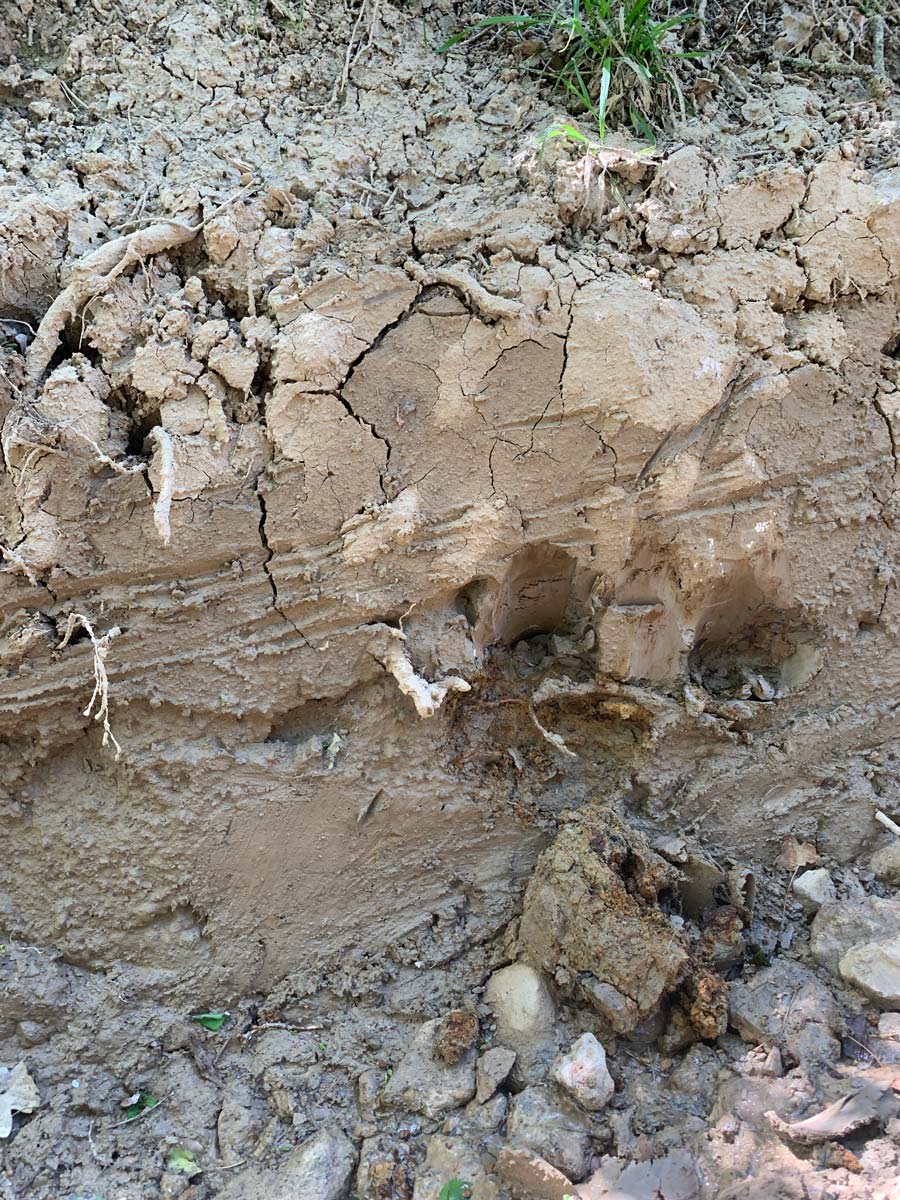
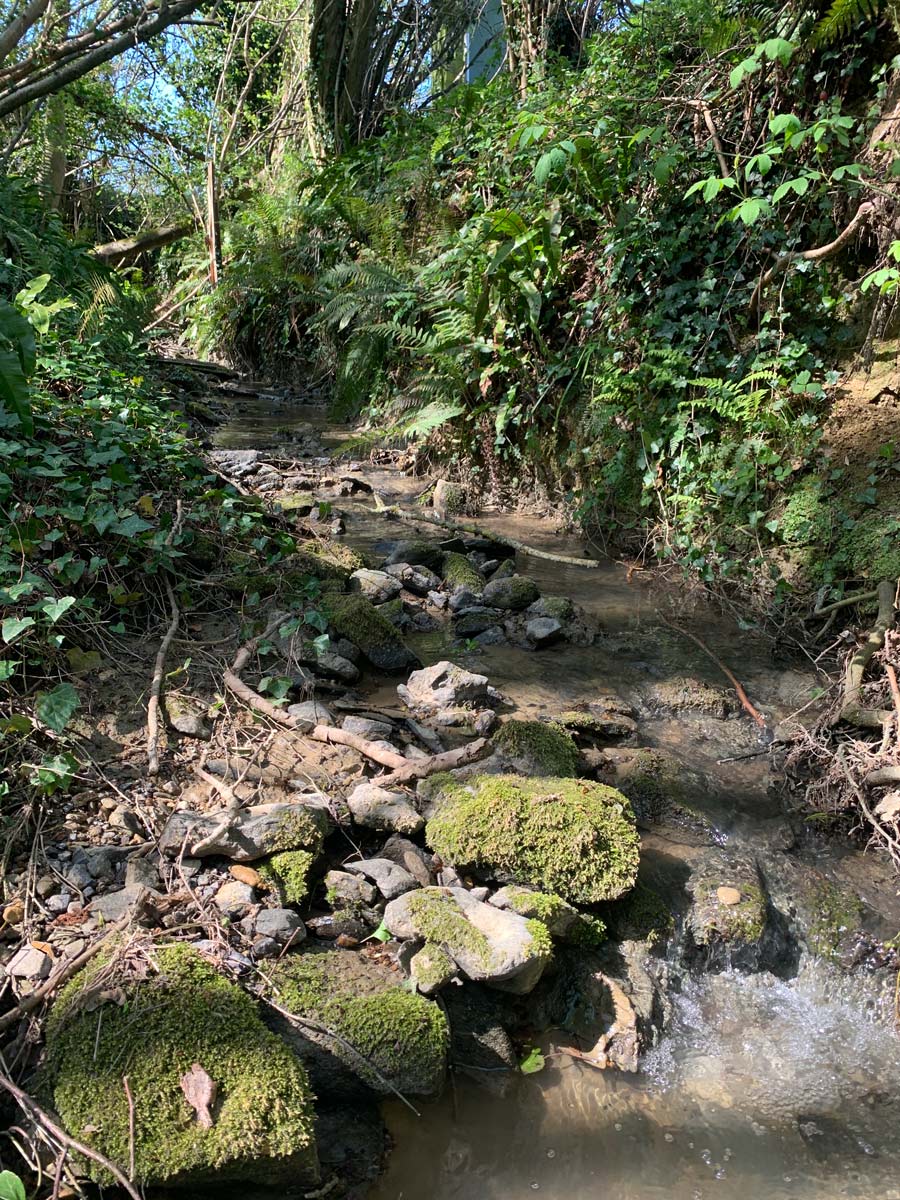
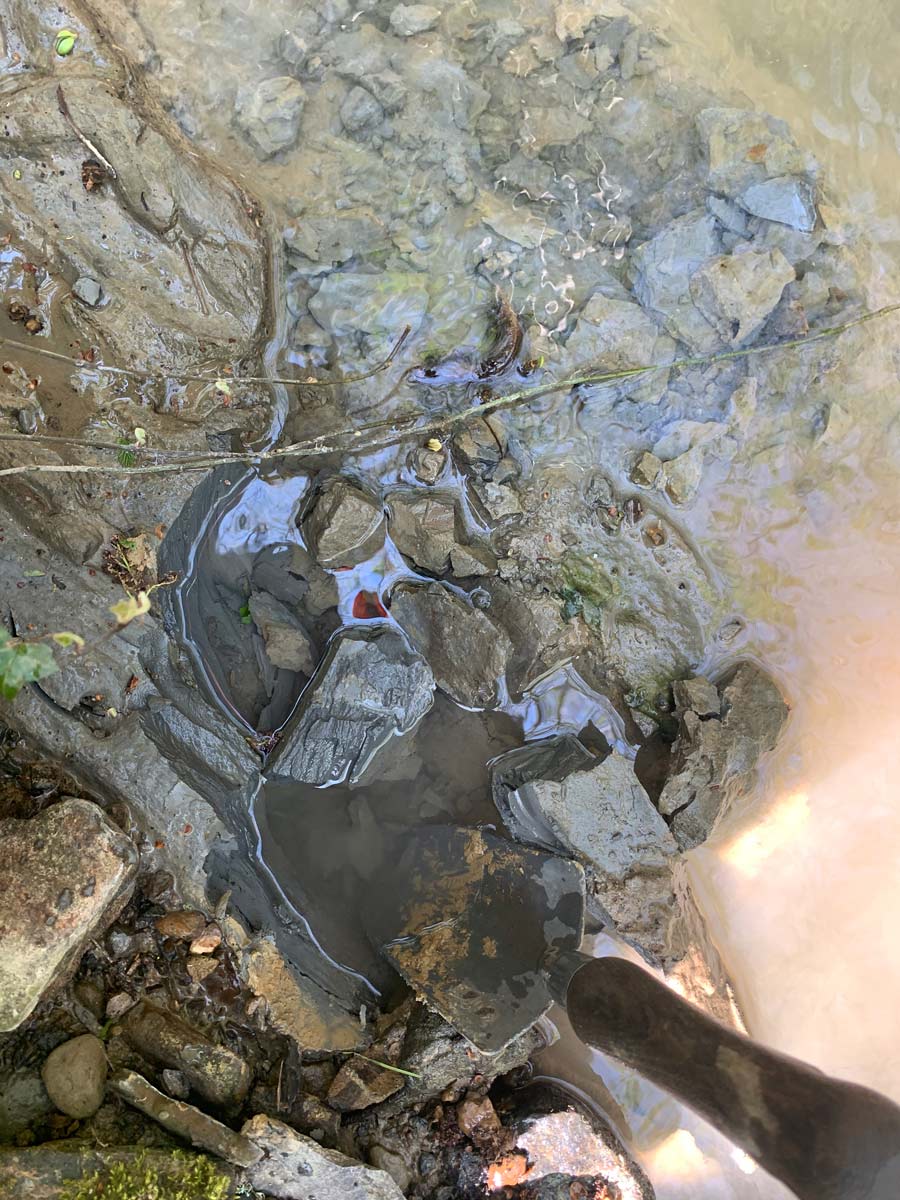

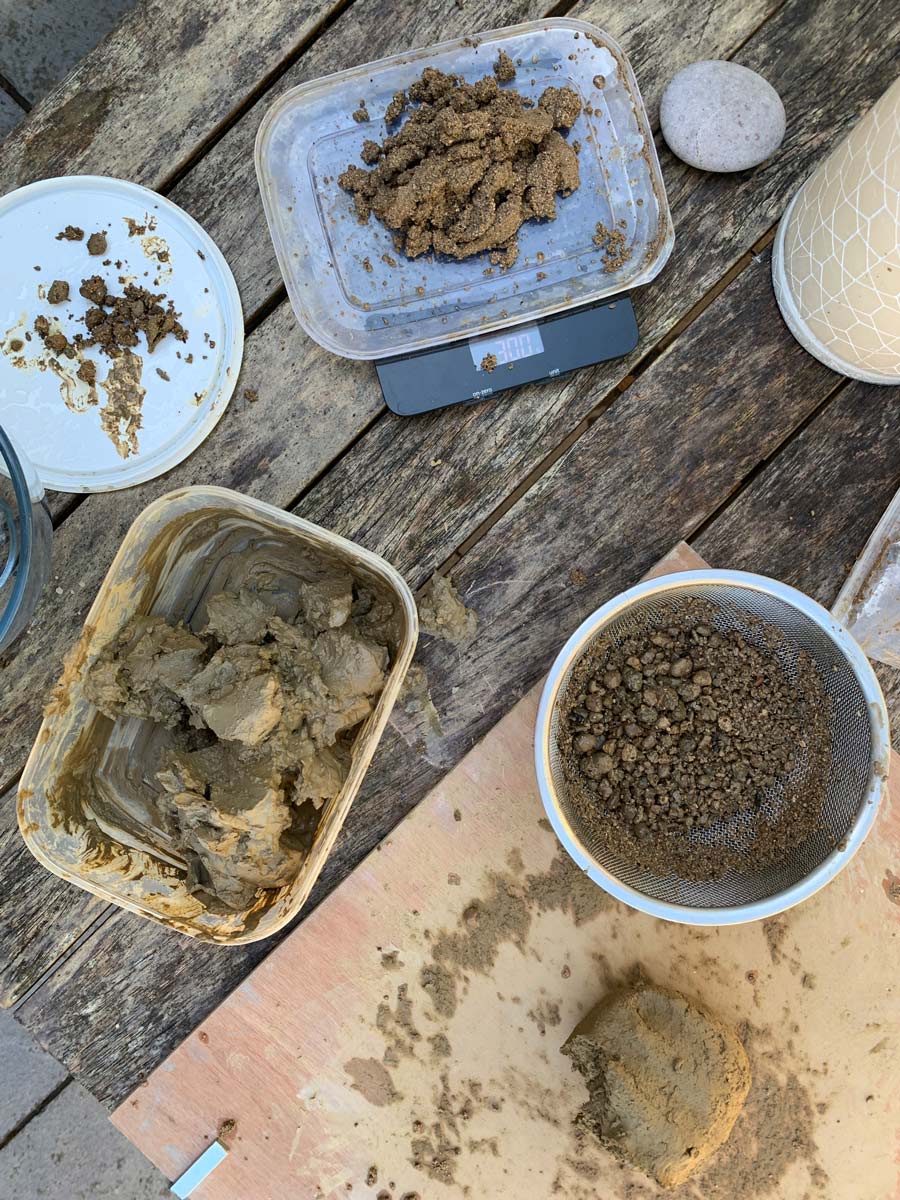
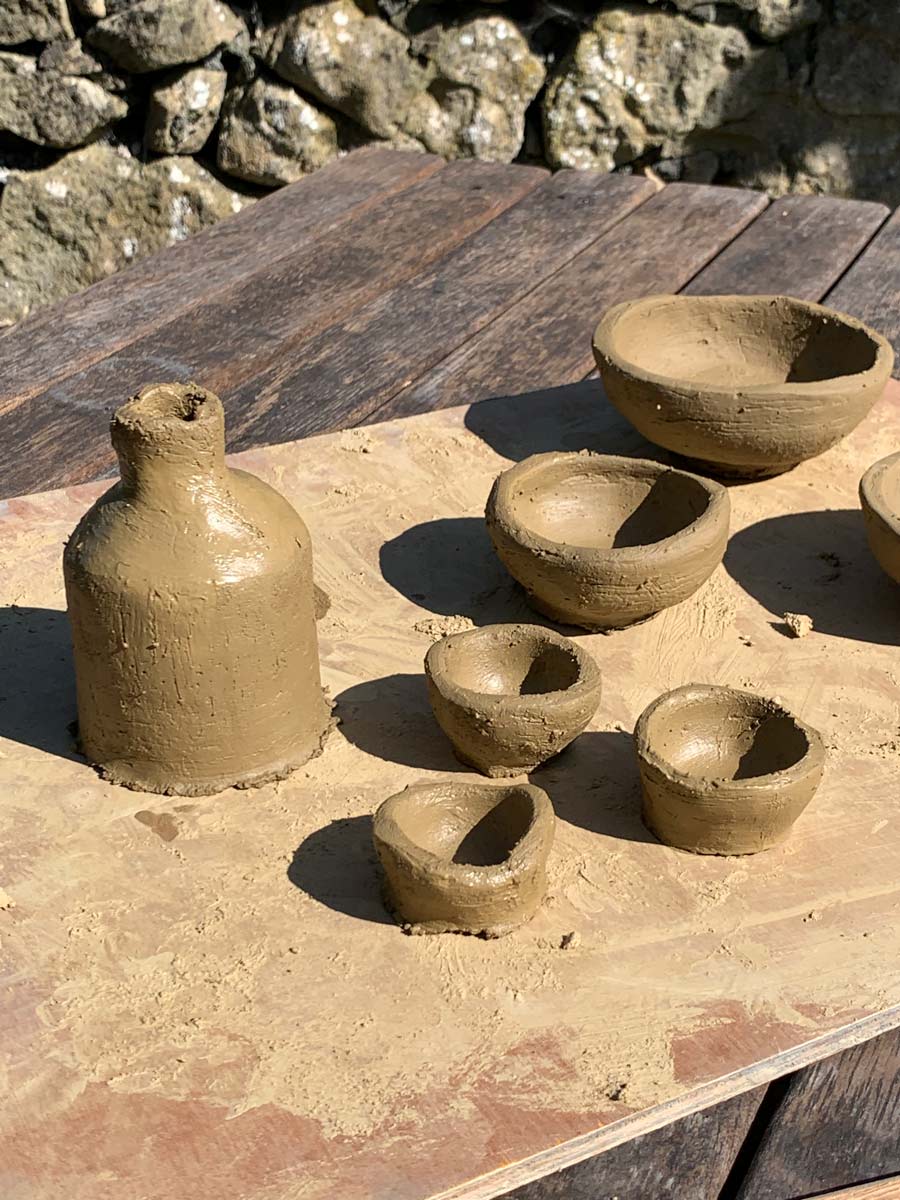
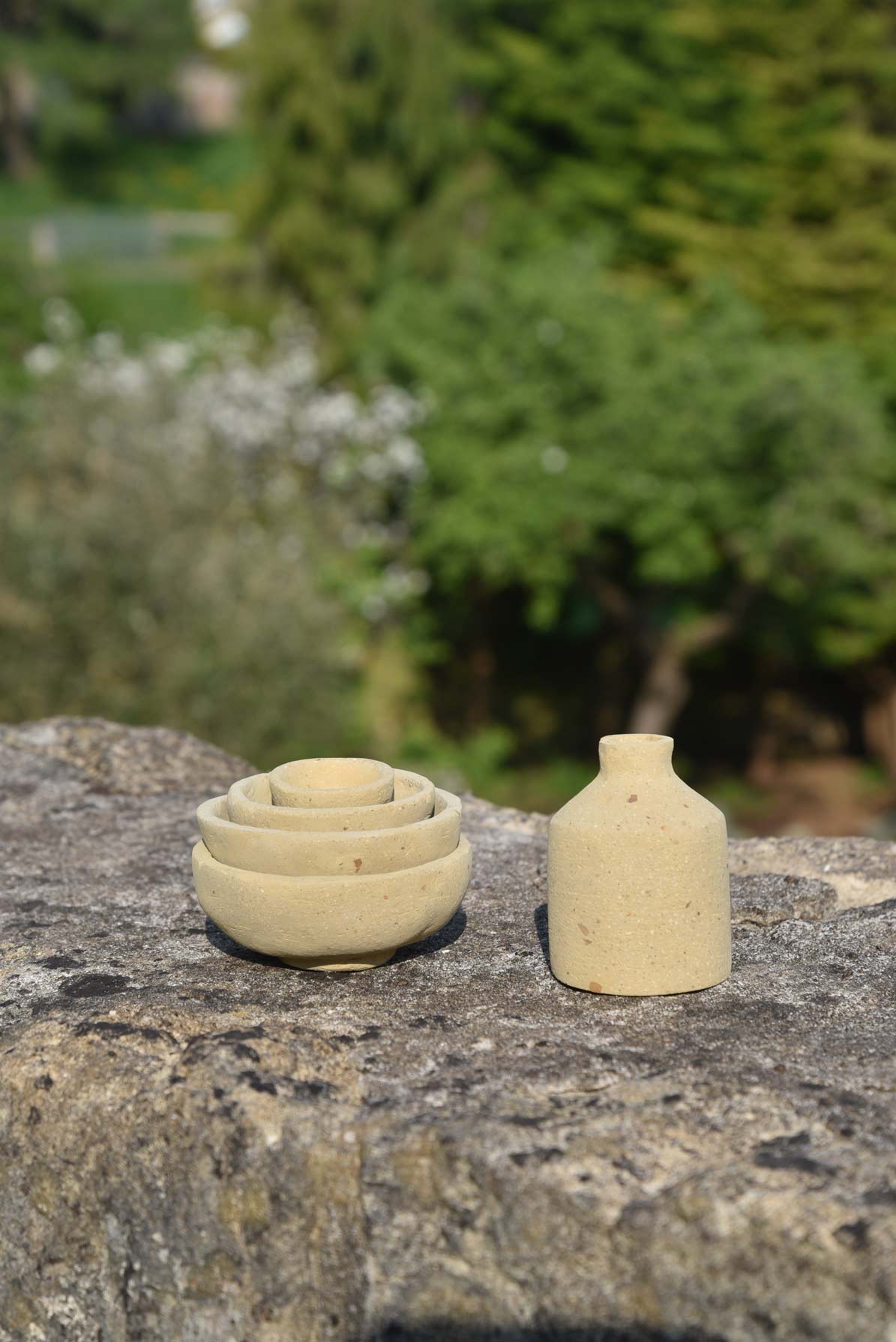



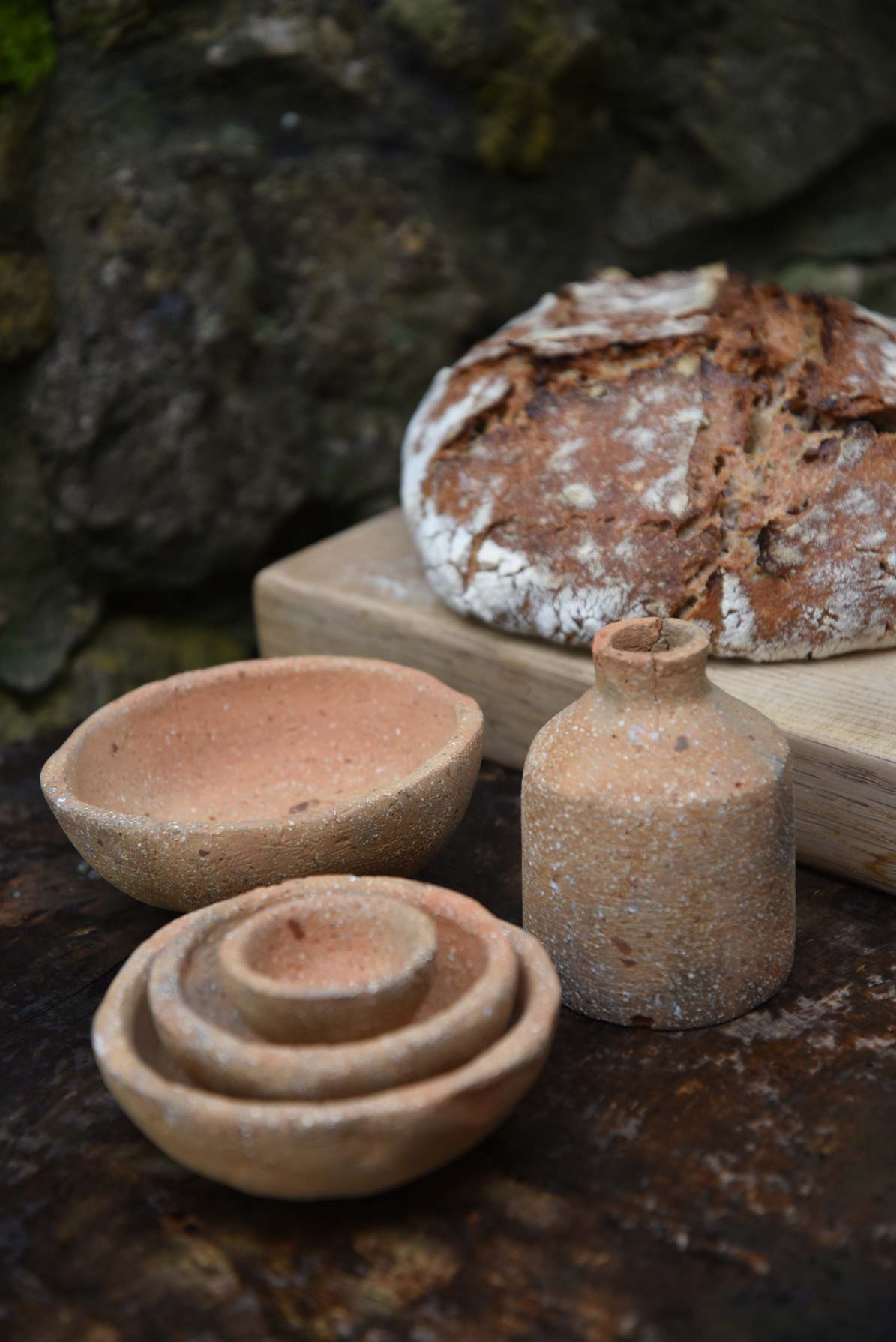
What stuck with me was “guilt-free”. We go on holiday, we go travelling, we get annual leave, but there’s always work on the other side, there’s always something to return to. The time you spend relaxing is undermined by the mental preparation for your reintegration into the hectic lifestyle that most of us lead. To be in the throws of a near global lockdown, with no tangible end in sight, and no guarantee that what we go back to will be the same as what we left, it is easier to live in the now and not be weighed down by what is to come.
I recently shared another person’s post on my Instagram story. It started with some text saying that if you didn’t come out of quarantine with a new skill or knowledge then “you lacked discipline”. The last line was then crossed out with an amendment that read “you are doing just fine. Not everyone has the privilege of turning a pandemic into something fun or productive.” The response I got surprised me. A number of people messaged me thanking me for sharing it and I realised that many more people seemed to be feeling a similar pressure as me to create, work and be productive. Personally, this kind of self imposed pressure does nothing but stem my flow of creativity.
From working two chef jobs in London, planning for a masters degree in Milan, organising my own catering events in my spare time and seeing a personal trainer once a week, I came to my parents house in Bath and was plunged into a sedentary lifestyle where my only real structure was to cook dinner every evening for the family. It’s an abrupt change that everyone can relate to and it took me some time to get back on my feet, but I kept coming back to this idea of this time being “guilt- free”: a free pass.
It bears repeating that this is a very privileged position to be in. Most people I know are fortunate enough to have the means, space and support to maintain a comfortable lifestyle during a lockdown. It’s important to remember how fortunate we are in this situation, and to help the less fortunate in any ways we can - whether it be providing a service or helping fund one charitably.
But it’s also important to address how this impacts oneself. This self imposed pressure has weighed on me heavily. Used to getting up at 6am, I’ve been challenged to get out of bed by mid morning. When faced with the smallest of commitments I have spent hours scrolling through Instagram as a means of distraction, and in coming up against a creative block or mental obstacle, I have turned to overeating to stifle my guilt. Everyone reacts in their own way but the important thing is to tune into what helps to lift you out of this mindset.
I started my isolation with the intention of doing home workouts every other day, learning Italian, making a small recipe book and a number of other goals. I have achieved none of these things, I’ve not even started them. But I have achieved something more valuable: the ability to live day by day. The farthest I have planned into the future is two days, with no need or interest in planning beyond that.
With this lack of pressure I found some form of inner peace that I have not felt in a long time. I’ve been more creative than I have in years. I have started painting again, the meals I cook are every time more interesting and experimental, and I have learned new cooking techniques that have eluded me in the past. I have also enjoyed playing computer games without feeling that I should be doing something more productive and I have indulged in foods that I would normally avoid for the pressing guilt that they might make me gain weight. This is how I have responded personally, others may respond differently. One of the important elements of flourishing with this lack of pressure is to not compare oneself to the progress of others.
I am particularly susceptible to measuring my progress compared to the progress of others. It’s not a trait that I am proud of and it’s not one I applaud. One should encourage and celebrate their peers while simultaneously encouraging and celebrating themselves, not admonish and undermine others for their progress. Other than to update my professional profile on Instagram with new recipes and instructional videos, and to respond to the queries and question of others, I have avoided social media where I can. This has worked for me as it has given me the opportunity to focus on what I’m doing and not what others are doing.
Everyone I know who has found this inner peace in their isolation has responded differently. One friend has a routine that starts with workout every morning before doing anything else. Another has outlined a daily timetable to follow, with tasks such as sudoku, sketching and dog walking. A third has regular video calls with other friends and another still has taken the opportunity of his daily exercise to explore the area he lives properly in for the first time in years. It goes without saying, of course, that however one best finds their inner peace, it should be done in a socially responsible manner.
As humans we have a propensity to centre ourselves in what is happening. I saw another post on instagram, similar to the one I mentioned previously. The initial statement read that this was a time to judge who your real friends were by who remained in contact with you. It was followed by someone pointing out that using a pandemic to measure the loyalty of your friends is incredibly selfish and commenting on how easily humans place themselves at the centre of the world. In a situation where the most useful thing that the majority of us can do to help is to stay home and avoid social contact, it offers a real opportunity to reconnect and realign oneself.
My mother said to me yesterday that I should enjoy this while it lasts, as it will be hectic returning to the life we were used to before. I think half of this is good advice. Be prepared for your return to normal life, hectic or not, and be prepared for change, because we will eventually be back at work, and the world will undoubtedly be different. But I would urge you, rather than enjoying this while it lasts, work out how to carry this inner peace with you so you can continue to enjoy doing things guilt-free in the future.